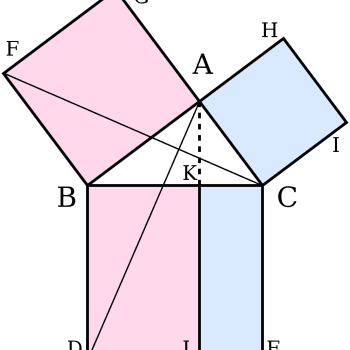
Plasma Science and Fusion Center at the Massachusetts Institute of Technology in
Cambridge, Massachusetts. (Image from the MIT website)
In his book Monopolizing Knowledge, MIT plasma physicist Ian Hutchinson first cites a passage from Chance and Necessity, by the Nobel Prize-winning biologist Jacques Monod:
The cornerstone of the scientific method is the postulate that nature is objective. In other words, the systematic denial that ‘true’ knowledge can be got at by interpreting phenomena in terms of final causes–that is to say, of ‘purpose.’
Hutchinson agrees that Monod has correctly characterized science, and then proceeds to comment on the implications of science’s self-limitation:
Science rules out explanation in terms of personality, and hence rules out purpose, from the beginning, as an operational postulate. The way this exclusion works is first by science’s insistence on reproducibility. If a cause and its effect are to be truly reproducible, then the cause cannot be a free agent. Free agents’ actions are precisely not reproducible. That non-reproducibility we take to be one of the evidences of agency. . . . Since science requires reproducibility, and describes the world only in so far as it is not reproducible, it rules out of its scope of description the irreproducible agent, and hence purpose. (68)
There are, then, strong reasons founded in science’s reliance on reproducibility and Clarity why science effectively rules out explanations in terms of purpose. Purpose presupposes an agent, a personality. Persons can’t be adequately described within the rubrics of reproducibility and Clarity. They are methodologically excluded. And so is purpose.
It should be no surprise, therefore, that science fails to find personality and purpose in the world. It could not possibly do so because it rules them out from the beginning. There can never be a scientific explanation of personality or purpose as such. There can be a scientific description of the material substrate in which personality is embodied; brain science is at the very rudimentary beginnings of such a description for humans; but this does not prove that there is no such thing as personality. It is mere presumption, not based on scientific results, to suppose that a scientific description ‘explains away’ personality, in the sense of rendering descriptions in personal terms empty or meaningless. (71)
Another relevant passage:
It is far from obvious that the notion of personal agency is less familiar than mechanism. From a purely humanistic viewpoint, personality is actually more familiar, for example, than impersonality. (61)
***
Further, on reductionism:
Over on the Peterson Obsession Board, one or two folks are hyperventilating yet again about my vicious, hateful cruelty toward this blog’s regular atheist commenter, for whom most of us actually have a certain amused if occasionally exasperated affection. It seems that I insult and “otherize” him with such contemptuous epithets as meat wad and cockroach, thus illustrating my dehumanizing contempt for those who fail to share my faith.
They know better. This accusation is utterly disingenuous. It’s a virtual certainty, for example, given their obsessive daily scouring of this blog for anything and everything that they can press into service against its proprietor, that they’re fully aware of this recent entry:
“Humans as “cockroaches”? One Way of Reading Scientific Naturalism”












